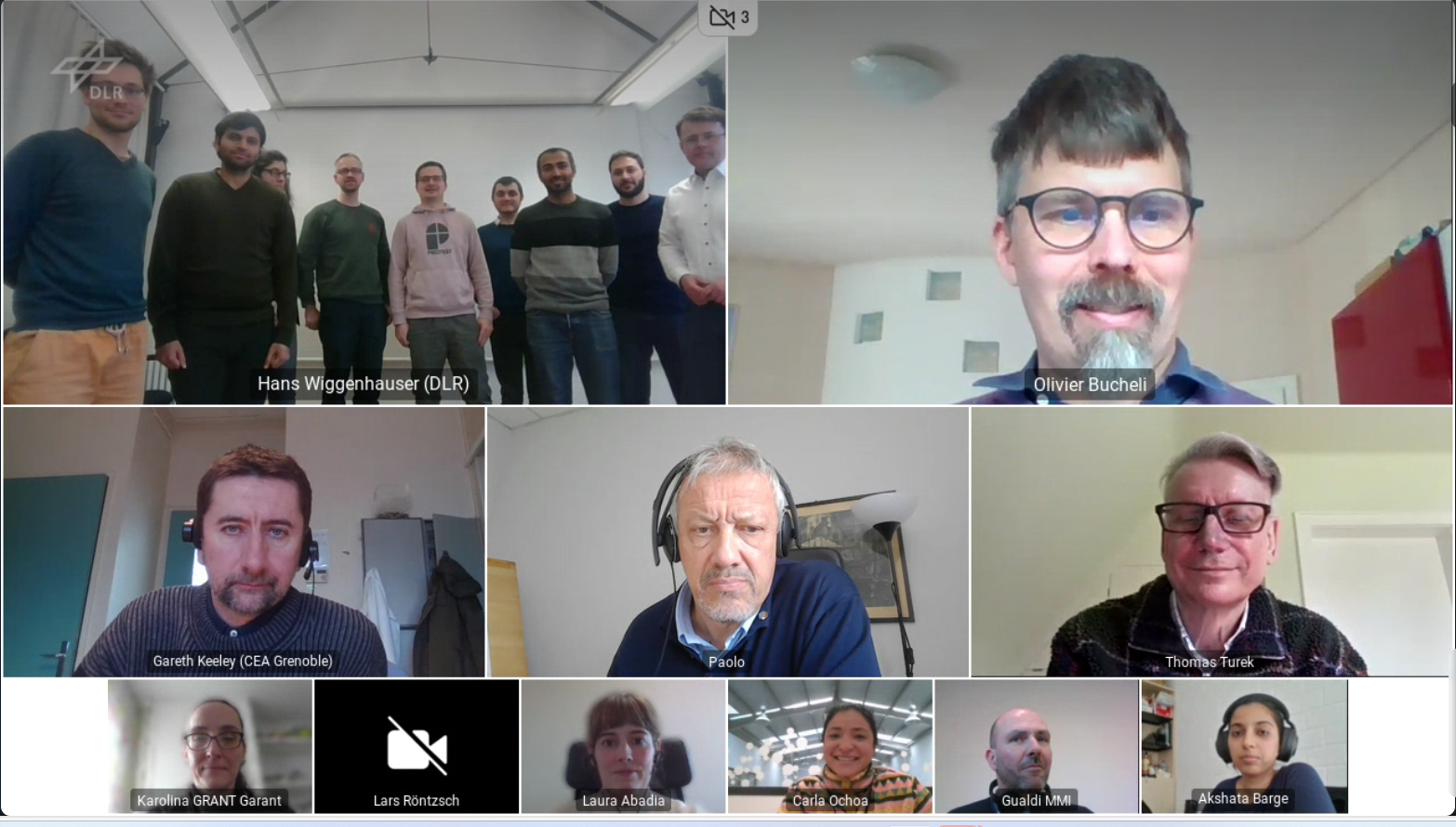PEACE Project Internal WorkshopWith special guests on hydrogen production
Published: February 14, 2025
On 5 February 2025, the PEACE project organized an internal workshop on alkaline electrolysis and green hydrogen production. Hosted by the PEACE project coordinator, Dr. Fatemeh (Sanaz) Razmjooei (DLR Institute of Engineering Thermodynamics), PEACE project members gathered alongside invited experts working on various electrolyser technologies.
Key insights into alkaline water electrolysis were shared by prof. Thomas Turek (Technische Universität Clausthal). Olivier Bucheli (Adele Hydrogen) provided an inspiring outlook on the future of green hydrogen production, with a focus on advanced alkaline electrolysers.

The workshop also featured valuable contributions from representatives of hydrogen production-oriented research and innovation projects. Colleagues from the HYPRAEL project presented their work on advanced alkaline electrolysis technologies for compressed hydrogen production. Gareth Keeley (Commissariat à l´énérgie atomique et aux énergies alternatives) introduced the AEMELIA project, which is innovating in anion exchange membrane water electrolysis. Additionally, the Horizon Europe project CLEANHYPRO shared its approach to establishing an Open Innovation Test Bed, aimed at scaling up circular innovative materials and components for electrolysis.
The workshop was an excellent opportunity for research and innovation networking, fostering discussions on sustainable and cost-effective hydrogen production across different electrolysis technologies. The PEACE project extends its gratitude to all guest speakers for their valuable contributions. We look forward to strengthening our collaborations!

The project is supported by
the Clean Hydrogen Partnership and its members.

Co-funded by the European Union. Views and opinions expressed are however those of the author(s) only and do not necessarily reflect those of the European Union or Clean Hydrogen Partnership. Neither the European Union nor the granting authority can be held responsible for them.